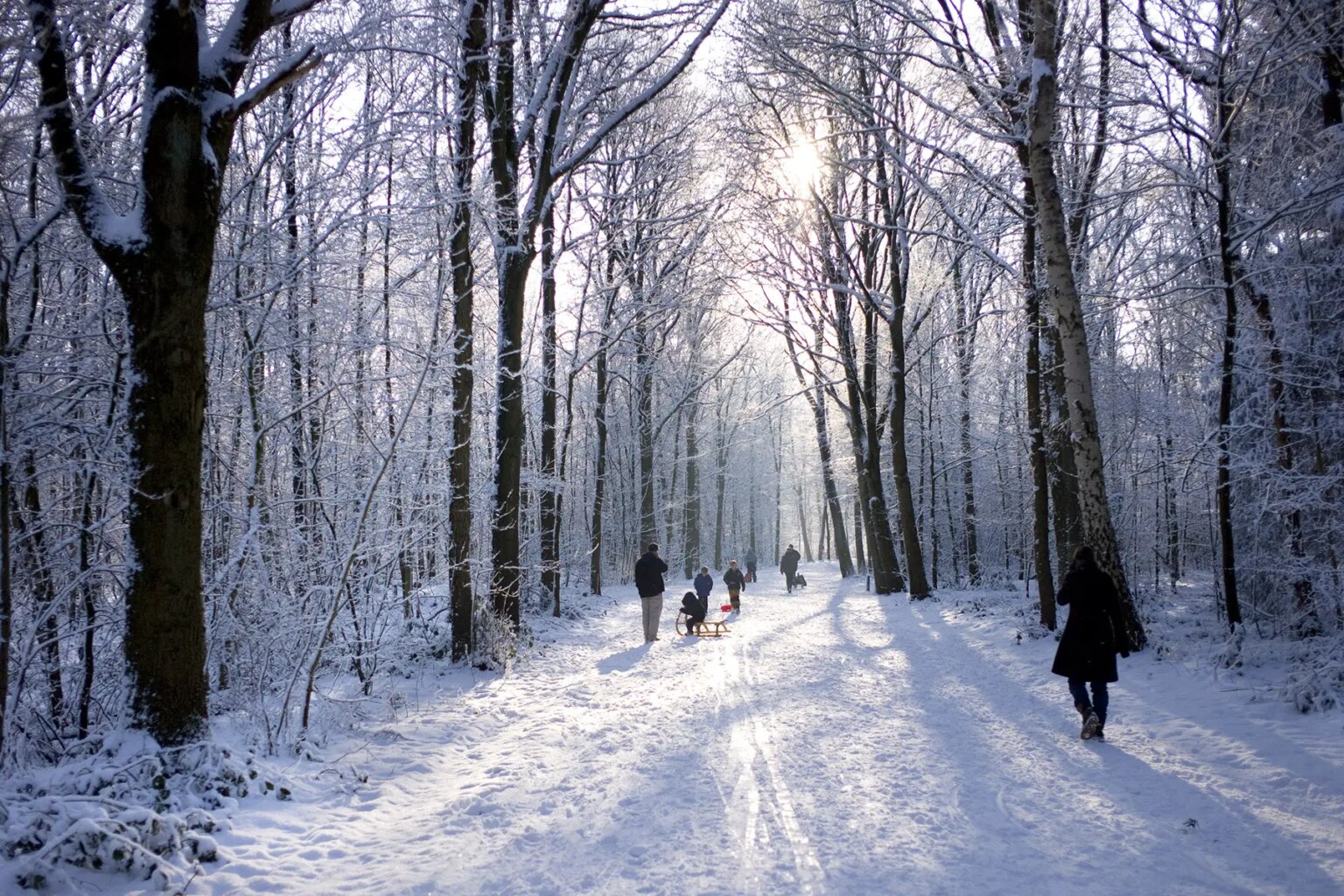When winter sets into the Netherlands, it’s time to get ready for the onslaught of colder, greyer, darker days. Some winters in the Netherlands are more snowy than others, and some are rubbish winters where everyone can survive with their eyes closed. It can be a shame because there is so much to love about winter events in the Netherlands, so this year hopefully the weather will let us see what the Dutch are really about when winter strikes. If you want to get the most out of winter in the Netherlands add these 15 items to your Dutch winter survival kit.
- 1. Ice skates
- 2. Eternal hope
- 3. Sledge – and nerves of steel
- 5. A full set of winter clothing
- 6. Stormproof umbrella
- 7. Potato masher
- 8. Hot chocolate
- 9. A love of pea soup
- 10. Patience
- 11. Transport to Germany
- 12. A supply of glühwein
- 13. Candles
- 14. A sweet tooth and spare shoes
- 15. An ability to take things with a pinch of salt
1. Ice skates
As temperatures drop, the nation collectively blows the dust off their ice skates, sharpens their blades and waits for the nearest puddle, pond, canal or lake to freeze over. It’s an amazing sight for someone who did not grow up in this winter skating culture, although it’s not so amazing for the locals to see us beginners on ice skates haphazardly on the ice.
For the Dutch, skating is second nature and their love of ice skating is reflected in their many Winter Olympic successes. How many gold medals did the British win in ice skating at the last Winter Olympics? I rest my case. That’s why I stay on the sidelines and let the Dutch get on with it, but I encourage you to give ice skating in the Netherlands a go.
2. Eternal hope
Where there is ice in the Netherlands there is eternal hope. As the ice grows, so do the hopes of a nation that this year will be the year that the Elfstedentocht takes place. Every year hopes are dashed and dreams are shattered as the ice melts. But it doesn’t hurt to hope, does it?
3. Sledge – and nerves of steel
If you don’t have a sledge, you are never going to be considered as fully integrated – unless it’s because you are still cycling even when it snows and the pathways are covered in thick ice. Some do; you can see cyclists skidding their way to work and school on two wheels. Otherwise, a sledge works wonders to take your children to school.
You’ll also need nerves of steel to tackle the smattering of ice covering the cycle lanes. In my humble, unimportant opinion, you’d have to be bonkers to cycle on ice, but if you really want a gold integration star then go ahead. Ga je gang.
5. A full set of winter clothing
The Netherlands is a flat country and there’s nothing to stop that cold, icy wind blowing over the land. Without hills, the wind tears over it like a savage beast and penetrates to your very core – unless you have a thick winter coat, a good pair of woollen mittens and a warm knitted scarf, of course.
6. Stormproof umbrella
Just like during the autumn months, it rains during winter too. The difference is that the rain is slightly colder as winter zips by. A stormproof umbrella is probably a better recommendation for December actually, one of those funny shaped ones that promise never to blow inside out.
7. Potato masher
Winter means stamppot season. It means dinners come mashed. Stamppot is basically mashed potatoes with some kind of vegetable mashed through it, served with a bendy sausage and gravy, or jus as the Dutch more elegantly put it.
8. Hot chocolate
If ever there was an excuse to drink lots of hot chocolate, Dutch winter is it. Going ice skating? Then treat yourself to a hot chocolate from a festive stall around the rink. Going walking? Stop in somewhere and have a hot chocolate to warm up. Christmas market? The day wouldn’t be complete without a mug of hot chocolate. And by hot chocolate I actually mean Chocomel of course.
9. A love of pea soup
Eating pea soup in the winter is not just obligatory, it’s the law. It should be the deepest green you can imagine, have slices of sausages floating in it and be accompanied by roggebrood (that’s rye bread to you and me).
10. Patience
If you use Dutch public transport in winter, you need oodles of patience. Trains often grind to a halt because the wrong kind of snow is on the tracks. Or the wrong kind of ice. Or snow, of any type really. Just be patient – or give up and collect a bike/sldege/ice skates.
11. Transport to Germany
Winter means crossing the border to visit the German Christmas markets. There are some in the Netherlands too, but if you want authentic, then head to our neighbor who really knows how to ‘do’ Christmas markets.
12. A supply of glühwein
Gluhwein tries its best to outdo its hot chocolate colleague during the winter months and can suddenly be found everywhere as soon as winter rolls in. It’s a real belly warmer once the temperatures drop so worth indulging in a tipple whenever you are out and about.
Although, I would never condone an excessive consumption of the delicately spiced mulled mixture; as the Dutch say, ‘Geniet, maar drink met mate‘, which for the first few months of my Dutch adventure I translated as ‘Enjoy, but drink with friends’ although my Dutch partner reminded me it meant don’t be a drunk, quashing my belief that I had passed my initiation into Dutch society.
13. Candles
It’s not that the Netherlands has electric power issues during the winter. But if you were an alien visiting for the first time, you could be forgiven for thinking this is in fact the case. The Dutch love candles during the winter – in fact the whole season is all about gezelligheid. And it’s wonderful. So get those wicks burning and get cosy for the duration. See you in the spring!
14. A sweet tooth and spare shoes
During the first week of December in the Netherlands, you need a sweet tooth and a hardy stomach – and good evasion skills. The first week of December is is the climax of the whole Sinterklaas gedoe which goes on for weeks. There are kruidnoten, pepernoten and speculaas biscuits everywhere – and I mean everywhere. It’s not unusual to have the small round kruidnoten thrown at you by an assortment of Zwarte Pieten.
For this, you’ll also need lots and lots of spare shoes. Children can leave a shoe out at the supermarket, at school, at their sports club and of course at home. The good Sinterklaas (or Sint) and his helpers then fill the shoes with a small present, sweets, and biscuits.
15. An ability to take things with a pinch of salt
Talking of Sinterklaas and his Zwarte Pieten (Black Peters), when you experience your first Sinterklaas it can be a bit of a shock for an expat. Take it for what it is. If you have children, throw yourself as enthusiastically as you can into the story. You ain’t gonna change it – leave that to the locals.






